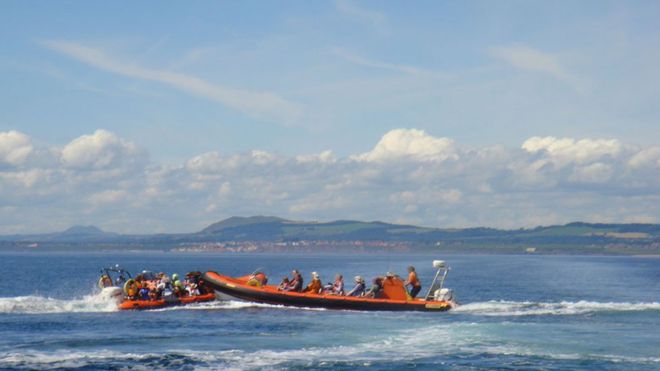Video: Float if you find yourself in trouble in UK waters says RNLI
Last year, 162 people died after getting into difficulties around the UK coast. The RNLI is urging everyone to remember to float not swim if they find themselves in trouble in cold water
The RNLI is calling on the public to fight their instincts should they get into trouble in UK waters and, instead, remember one simple skill – floating.
It comes as the charity releases new figures revealing that 162 people died around the country’s coastline in 2016.
17 of those who died were either sailing or boating at the time.
Adult men accounted for 74% of deaths and 77% over the past five years.
The RNLI believes that 40% of those who died would have followed a potentially life-threatening instinct of immediately trying to swim,
It said that research reveals that only 3% of British people know how to react if they unexpectedly fall into cold water
“Sudden immersion in water any temperature below 15C puts people at severe risk of cold water shock,” it said.
“This triggers the instinctive but life-threatening reaction to gasp uncontrollably, thrash about and try to swim hard,” continued the charity.
Continued below…
Search for sinking 70-foot yacht in the Solent believed to be a hoax
The UK Coastguard has issued a stern warning about making hoax calls after rescue teams were deployed last night to…
Video: Common sailing and boating mistakes and how to avoid them
None of us are perfect and we all make mistakes. Find out more about common sailing and boating errors from…
New boat safety advice after woman crushed in collision in Scotland
The Marine Accident Investigation Branch has issued new boat safety advice following an investigation into a crash between two RIBS…
“This reaction is the worst thing to do and can quickly lead to drowning as it increases the chance of water entering the lungs, increases strain on the heart, cools the skin and reduces buoyancy by letting air escape from clothing,” it added.
The RNLI’s advice is to float for around 60-to-90 seconds – the time it takes for the effects of the cold shock to pass and for you to regain control of your breathing.
The recommended floating position is to lean back in the water and keep your airway clear while keeping calm to maintain breathing levels. You should then be in a better position to attempt to swim to safety or call for help.
Only 3% of respondents in the RNLI’s research cited floating as the first action they would take if they fell in to cold water unexpectedly.
40% of respondents said their immediate reaction would be to swim, while 2% said they would panic – two of the instinctive responses the RNLI is urging people to fight.
Others said they would remove clothing (4%); do nothing (3%); hold their breath (1%), and 4% said they would not know what to do.
Coastal fatality figures released by the RNLI show 162 people lost their lives at the UK coast in the last year alone.
The figures for 2012–2016 are: 163, 167, 163, 168 and 162.
In 2016, swimming, jumping in and general leisure use of the water accounted for 25% (40) of the deaths, walking and running 20% (32); commercial use of the water 16% (26); sailing and boating 10% (17). Unknown activity was 16% (26).
With the charity’s national drowning campaign Respect the Water now entering its fourth year, this year the RNLI are calling on the public to fight their instincts.
Commenting, RNLI coastal safety manager, Ross Macleod, said: “Through our Respect the Water campaign, we want to start a national conversation about water safety. We’re asking the public to remember this lifesaving advice, share with others and practice the survival skill of floating – it could be the difference between life and death.”











